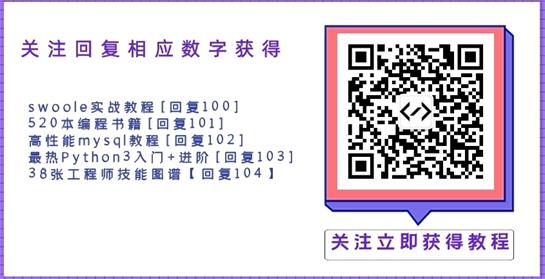一、环境配置
所有OS,建议使用python3.6;python2.7也可以,但在安装过程中可能遇到升级pip等问题;请参考pyzbar官网https://pypi.org/project/pyzbar/
1.Ubuntu16.4
apt-get install libzbar0
pip install pyzbar
pip install Pillow
2.Centos7
yum install python-devel
yum install zbar-devel
yum install zbarpip install Pillow
pip install pyzbar
3.Windows
pip install Pillow
pip install pyzbar
还需安装Visual C++ Redistributable Packages for Visual Studio 2013,即从微软官方下载的 vcredist_x64.exe程序
二、代码编写
Java代码
UserController.java
package com.yang.springbootlucene.controller;
import lombok.Data;
import lombok.extern.slf4j.Slf4j;
import org.springframework.beans.factory.annotation.Value;
import org.springframework.core.io.ClassPathResource;
import org.springframework.web.bind.annotation.RequestBody;
import org.springframework.web.bind.annotation.RequestMapping;
import org.springframework.web.bind.annotation.RestController;
import java.io.File;
import java.io.FileWriter;
import java.io.IOException;
/**
* @author:yjx
* @description:
* @date:2019/11/28 15:29
*/
@Slf4j
@RestController
@RequestMapping("/user")
public class UserController {
@Value("${pyzbar.script}")
private String scriptPath;
private static final String BASE_64_PREFIX = "data:image/png;base64,";
/**
* 这种方式在源码中成功调用,但达成jar包后,找不到脚本路径,所以脚本必须放在外面
*/
@Deprecated
private static String pyZbarScriptPath;
/* static {
ClassPathResource pathResource = new ClassPathResource("/script/my_py_zbar.py");
try {
pyZbarScriptPath = pathResource.getFile().getAbsolutePath();
} catch (IOException e) {
e.printStackTrace();
}
} */
@RequestMapping("/cameraScanPyZbar")
public Object cameraScanPyZbar(@RequestBody String base64) throws IOException {
if (this.checkBase64Head(base64)) {
//1.去掉base64字符的头部
String base64Str = this.cutHead(base64);
//2.创建临时文件(由于图片的base64字符太长,不支持直接以命令参数的形式传递,故将字符串写入临时文件,而后python程序读取临时文件内容)
String tempPath = "./" + Thread.currentThread().getName();
File tempFile = new File(tempPath);
FileWriter fileWriter = new FileWriter(tempFile, false);
fileWriter.write(base64Str);
fileWriter.flush();
fileWriter.close();
//3.调用pyzbar解析base64字符串
String plainText = PyZbarUtil.executePyzbar("python", scriptPath, tempFile.getAbsolutePath());
//4.删除临时文件
tempFile.delete();
System.err.println("--------->" + plainText);
return plainText;
} else {
return "参数格式错误";
}
}
/**
* 校验Base64值是否已规定的串开始
*
* @param base64
* @return
*/
private boolean checkBase64Head(String base64) {
return base64.startsWith(BASE_64_PREFIX);
}
/**
* Base64去头
*
* @param base64
* @return
*/
private String cutHead(String base64) {
return base64.replaceAll(BASE_64_PREFIX, "");
}
}
PyZbarUtil.java
package com.yang.springbootlucene.controller;
import java.io.BufferedReader;
import java.io.InputStreamReader;
public final class PyZbarUtil {
/**
* 脚本执行工具类
*
* @param lang 命令语言
* @param scriptPath 脚本绝对路劲
* @param base64Path base64文件绝对路径
* @return
*/
public static String executePyzbar(String lang, String scriptPath, String base64Path) {
String[] arguments = new String[]{lang, scriptPath, base64Path};
try {
Process process = Runtime.getRuntime().exec(arguments);
int re = process.waitFor();
if (re == 0) {
try (BufferedReader in = new BufferedReader(new InputStreamReader(process.getInputStream(), "GBK"));) {
return in.readLine();
}
} else {
System.err.println("脚本调用失败");
}
} catch (Exception e) {
e.printStackTrace();
}
return null;
}
}
python脚本my_py_zbar.py
# -*-coding:UTF-8-*-
import sys
import base64
from io import BytesIO
import pyzbar.pyzbar as pyzbar
from PIL import Image,ImageEnhance
'''将base64转换为字节流'''
def convert_base64_to_byte_stream(base64_str):
# 1.解码Base64字符串
img_data = base64.b64decode(base64_str)
# 2.将节码结果转为字节流
byte_stream = BytesIO(img_data)
return byte_stream
'''从将字节流解析二维码'''
def parse_byte_stream_qr_code(byte_stream):
# 3.打开字节流得到图片对象
img = Image.open(byte_stream)
img = ImageEnhance.Brightness(img).enhance(2.0) #增加亮度
img = ImageEnhance.Contrast(img).enhance(4.0) #增加对比度
# img = ImageEnhance.Sharpness(img).enhance(17.0) #锐利化
# img = img.convert('L') #灰度化
# img.show() # 播放图片,供测试用
# 4.调用pyzbar解析图片中的二维码
barcodes = pyzbar.decode(img)
# 5.打印解析结果
return barcodes[0].data.decode("utf-8")
def main(argv):
# print(parse_byte_stream_qr_code(convert_base64_to_byte_stream(argv[1])))
print(parse_byte_stream_qr_code(convert_base64_to_byte_stream(open(argv[1]).readline())))
if __name__ == "__main__":
main(sys.argv)
三、主要坑点
- 图片转base64后,得到的字符串太长,不能直接以命令参数的形式传递,所以必须将其写入临时文件,然后python脚本读取临时文件进行解析
- 若将python脚本放在项目中,项目打成jar包后,无法定位脚本路径,导致执行失败,所以必须将脚本放在jar包外,以配置的形式将路径传递给java项目
以上就是本文的全部内容,希望对大家的学习有所帮助,也希望大家多多支持自学编程网。

- 本文固定链接: https://zxbcw.cn/post/193700/
- 转载请注明:必须在正文中标注并保留原文链接
- QQ群: PHP高手阵营官方总群(344148542)
- QQ群: Yii2.0开发(304864863)
